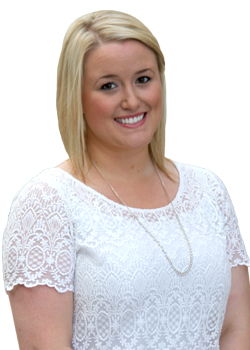Qualified professionals with a background in Health Policy & Management and Informatics are in demand due to an aging and growing population and workforce, new technologies and restructured health care systems.
York Health Policy & Management (Health Studies) graduates are working in all sectors, including health care, non-profit, private, government and in many occupations such as health policy analysts, program managers and analysts, data analysts, community health and education associates, as investigators with the Ontario Ombudsman’s Office, software developers, health finance analysts, and much more. Below is a sampling of some of the many careers that graduates have gone on to:
Careers for Health Policy and Management
- Health Systems Planner
- Health Care Manager*
- Administrator in a community health or health care organization
- Quality Performance Specialist
- Account Coordinator in Health Management/Disability Management
- Project Coordinator
- Research Coordinator
- Data Analyst
- Health Finance Analyst
- Health Information Specialist
- Systems Designer
- Systems Integration Specialist
- Software Developer
- Health Human Resources Analyst
- Health Policy Analyst
- Health Policy Researcher*
- Health Care Advocate
- Community Health Worker
- Community Health and Education Associate
*According to Canadian Business Magazine, Health Care Manager and Health Policy Researcher are among Canada’s best jobs for salary and demand outlook. Canadian Business Magazine, Canada’s Best Jobs 2014
With further postgraduate training
- Medicine
- Nursing
- Physiotherapist
- Occupational Therapist
- Teacher
 Jennifer Catton
Jennifer Catton
2010 Bachelor of Health Studies (BHS) (Health Management)
Project Manager at Cancer Care Ontario
Great Profs inspire a successful career in health management
Within four months after graduating from York University’s Health Management program in 2010, Jennifer Catton started as a Business Analyst with the Department of Medical Imaging, which spans University Health Network, Mount Sinai Hospital and Women’s College Hospital. She was part of a team that applied Lean Six-Sigma methodology to reduce patient wait times at MRI departments, ultimately saving $2.5 million each year by increasing patient capacity with existing resources. She later moved on to a position within the same department as a Senior Analyst where she was responsible for developing the department’s strategic plan. Today she is a Project Manager with the Cancer Screening program at Cancer Care Ontario where she leads projects to improve the effectiveness and efficiency of operational processes, as well as leading initiatives to advance Ontario’s cancer screening programs towards person-centered care.
“I continue to use the foundational knowledge and skills I learned in the health management program at York University” says Jennifer. “Each professor brought the course material to life through expertise and a passion for the subject matter. They not only gave me the skills and tools I needed to succeed but also instilled within me a strong motivation to make a difference.”
 Julia Salzmann
Julia Salzmann
2013 Bachelor of Health Studies (BHS Spec. Hons) (Health Policy)
Jr. Policy Analyst, Aboriginal Affairs & Northern Development Canada (AANDC)
Canadian Institute of Health Research (CIHR) Fellow
Providing strategic policy advice to strengthen relations with First Nations
As a Junior Policy Analyst at Aboriginal Affairs & Northern Development Canada (AANDC), Julia supports the Senior Policy and Planning Adviser in providing clear policy and strategic advice to the Regional Director General, Assistant Regional Director General, Regional Management Team and the full suite of AANDC programs and policies as implemented in the Ontario region. She works closely on developing a Strategic External Meeting Plan to ensure that the regional office is continuing to strengthen its relationships with our First Nation partners.
She is currently studying towards her Masters degree in Public Policy (MPP) at U of T, a professional program that allows her to examine the most challenging issues that confront governments at all levels while exploring how decisions and choices are made. Upon completion of her studies, she would like to continue to gain on-the-ground policy experience and one day return to York to translate her skills and teach other aspiring policy professionals.
“If it wasn’t for coming to York, I wouldn’t be the person I am today,” says Julia. “My professors have had a profound influence on me. I keep telling them, ‘I’ll be back’.”
 Rathika Goyal
Rathika Goyal
2011 Bachelor of Health Studies (BHS) (Health Informatics)
Project Analyst at University Health Network
Valuable blend of technical skills and business savvy
Ratika Goyal has always had a technical mind, and she was pleased to learn that she could use it to make an impact on healthcare with a degree at York. She came to York ahead of her class after taking some Advanced Placement (AP) courses in high school, thinking that she wanted to go into Business and Information Technology (IT). She ended up graduating in three years with an Honours Bachelor degree in Health Studies in 2011, specializing in Health Informatics, and soon after worked as a Data Analyst at St. Michael’s Hospital. She knew her mind from the beginning, and worked on a direct path to success.
“The health informatics program helped me merge my business and IT focus with my interest in healthcare,” said Ratika.
The program allowed her to learn about the different aspects of health care as she liaised with the Local Health Integration Networks (LHINs), various hospitals, and the Ontario Ministry of Health and Long-Term Care. It was her class with professor Serban Dinca-Panaitescu, in the school of Health Policy and Management, that taught Ratika about the technical side of healthcare that has helped her in her current position at the University Health Network in the Shared Information Management Services department as a Business Analyst. Ratika also received advice and mentorship about the real world of healthcare from lecturer Julie Kim in her eHealth course. “After speaking with Julie, I applied for the position,” said Ratika.
As a business analyst, she worked on a mix of project-based work and IT-based work. While she doesn’t work with code, she did work with different businesses in healthcare by translating their software needs to the technical workers on her team.
“In class, we did a lot of group work and interactive activities. We were taught the basics of different initiatives that are happening right now in healthcare, and having that knowledge really helped me. When I started I had an idea of what was going on,” said Ratika. Now she continues to move further up in her career as a Project Analyst at University Health Network.
As she’s still a new graduate, Ratika wants to work in different areas of healthcare in the future to be able to experience the healthcare system from all angles. “Once I get a better sense of the big healthcare picture, I will be better able to advocate for change and be in a decision-making role,” said Ratika about her future steps.
 Sadiq Raji
Sadiq Raji
2006 Bachelor of Health Studies (BHS) (Health Informatics)
Senior Analyst at Canadian Institute for Health Information
Enjoy technology and want work that helps people?
Every sector needs technological applications, and health is no different. In fact, the need to move to electronic patient records in Canada and globally virtually assures students of a job. Employers will be hospitals, information technology, and consulting firms, pharmaceutical companies, and government organizations such as the Canadian Institute for Health Information, or the provincial government’s SmartSystems for Health.
Perspectives on health policy and management, which York’s Health Informatics program includes with its core informatics-proved to be particularly valuable to Sadiq Raji in his job as a Health Human Resources Analyst with the Canadian Institute for Health Information.
“I currently manage the National Nursing Database, which contains information on supply, demographics, education, employment, and mobility trends related to nurses,” Sadiq explains. “We conduct analyses and provide data to governments, regulatory bodies, educational facilities, hospitals, other institutions, and researchers. A knowledge and understanding of health policy and management provides me with critical, additional context for the work we do with the data itself.”
Sadiq continues to move up in his field as a Senior Analyst at the Canadian Institute for Health Information.
For Sadiq, the opportunity to combine interests in health and health care, a desire to learn- and an ongoing fascination with information systems, technologies, and management continue to make health informatics a rewarding career.
 Hope Russell
Hope Russell
2004 Bachelor of Health Studies (BHS) (Health Policy)
Supervisor, CQI & Policy and Program Support
Equipped with the skills for health care reform
Building better health care systems requires creative planners who look beyond traditional approaches to build new partnerships and create synergies to maximize the use of health care resources.
Hope Russell worked as a Planning, Integration and Community Engagement Consultant with Ontario’s Central West Local Health Integration Network (LHN), one of 14 regional LHNs set up by the Ontario government to plan, allocate and coordinate health care resources to meet the specific needs of their communities.
“Part of my job was to bring together different health service providers and to integrate their services to improve access, capacity, and the continuum of care” Hope explains. “The key to improving access to healthcare services for people living in our region involves working closely with the physicians in our community. Additionally, I was involved in supporting a group of physicians across two LHNs that came together during the SARS outbreak to improve communications across regional boundaries of care and to work together to improve access to care, regardless of geography.”
Hope began work with the Regional Municipality of York in 2009, as a Senior Program Analyst, Strategic Service Integration & Policy in the Community and Health Services Department. She developed innovative and strategic responses to social programs, and plans in responding to human service needs, ensuring those align with provincial and federal priorities.
As of July 2014, Hope continues her work with the Regional Municipality of York in a new position, as a Supervisor, CQI & Policy and Program Support.
While post-graduate education is usually a requirement for these types of jobs, Hope says York’s health studies program provided her with an excellent foundation. “It encourages students to assess things critically and to think outside the box. As well, the program exposes you to provincial and national experts in health policy that are leading the reform of our health care system. Being able to apply that creative thinking approach and knowing who to turn to for expert assistance and advice are both essential to being able to do my job effectively,” Hope says.
Useful Websites
Association of Local Public Health Agencies (alPHa)
Canadian Centre on Disability Studies
Canadian Institute for Health Information
Canadian Institute of Public Health Inspectors (CIPHI)
Canadian International Development Agency (Employment Opportunities)
Canadian Public Health Association (CPHA)
Canadian Research.org (Academic Research Positions in Canada)
Charity Village (Non-profit postions)
Coach: Canada’s Health Informatics Association
International Development Research Centre (Career Opportunities)
Ministry of Training, Colleges and Universities
National Listing of Provincial Opportunities
Public Health Agency of Canada
Ontario Health Promotion E-Bulletin
Ontario Internship Program
Ontario Municipal Jobs
Ontario Public Health Association
Ontario Public Service Careers
Public Service Commission (Government of Canada)
Society for Disability Studies (SDS)
York University Career Centre

